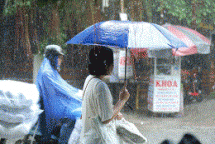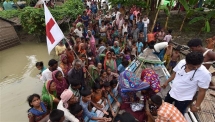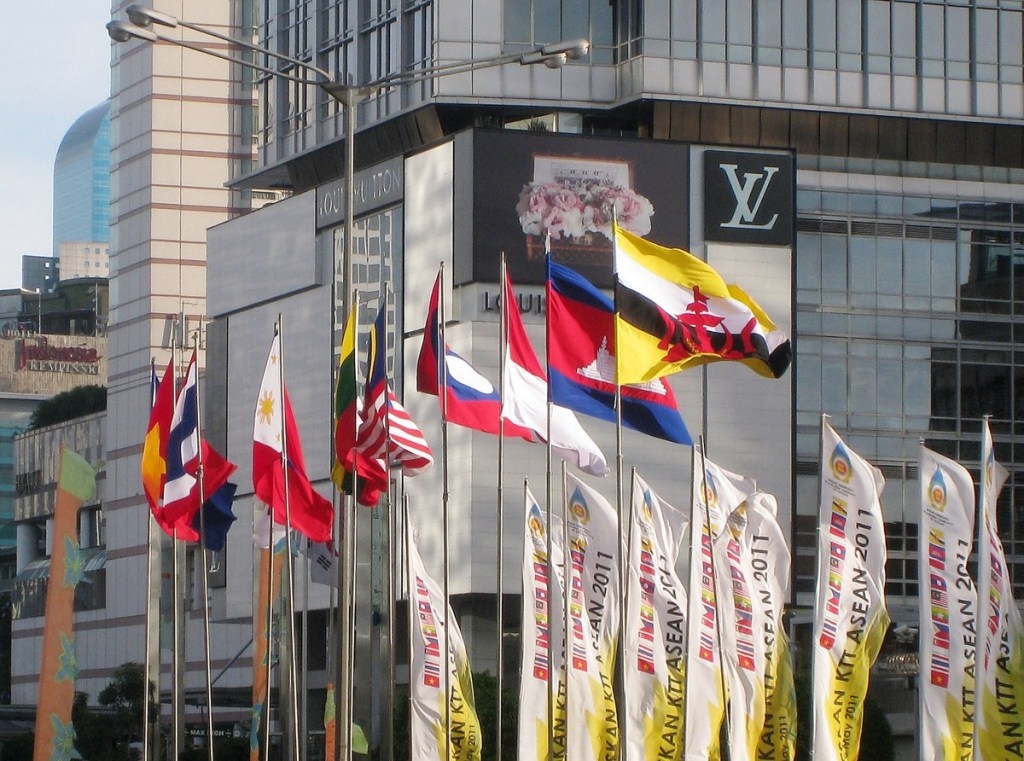At least 60 dead and 175,000 evacuated as deadly floods hit Indonesia
| Climate change, corruption behind Venice floods | |
| About 300 people die and go missing due to natural disasters each year: VNRC | |
| 24 million affected by South Asia floods: Red Cross |
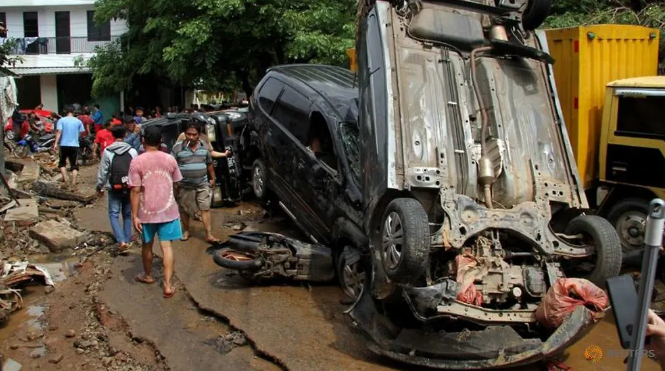 |
| People pass vehicles damaged by floods after heavy rains in Bekasi, near Jakarta, Indonesia Jan 2, 2020. (Photo: Risky Andrianto / Reuters) |
Nearly 175,000 people remain evacuated from their homes and took refuge in shelters across the massive urban conglomeration - home to 30 million - after whole neighbourhoods were submerged, AFP reported.
Torrential rains that started on New Year's Eve unleashed flash floods and landslides in the region and neighbouring Lebak at the south end of Java island.
On Saturday, Indonesia's disaster agency said the death toll had climbed to 60.
"We've discovered more dead bodies," said National Disaster Mitigation Agency spokesman Agus Wibowo.
Officials would be visiting the homeless on Saturday in the hardest-hit areas, he added.
Shelters filled up with refugees, including infants, resting on thin mats as food and drinking water ran low.
Some had been reduced to using floodwaters to clean themselves and dishes.
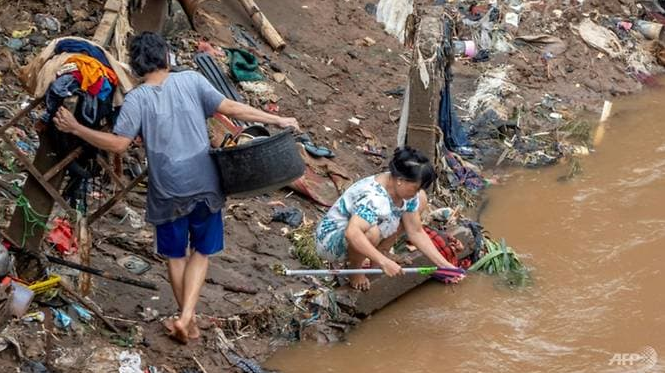 |
| Jakarta is regularly hit by floods during the rainy season AFP/BAY ISMOYO |
According to Reuters, with one of the world's longest coastlines Indonesia, the world's fourth most populous country, is extremely vulnerable to climate change. The metropolitan region of the capital Jakarta is home to 30 million people and parts of the city near the coast are sinking just as sea levels are rising.
However, the country is the world's fifth-largest emitter of the greenhouse gases that are blamed for causing the climate crisis. It is also the world's top exporter of both thermal coal and palm oil, whose cultivation has reduced the amount of carbon dioxide absorbing forests.
The government said on Friday it would start cloud seeding to the west of the capital - inducing rain using chemicals sprayed from planes - to prevent approaching rainfall from pounding the region.
Waters had receded in many areas and power was being restored after being cut off in hundreds of districts.
The health ministry has said it deployed around 11,000 health workers and soldiers to distribute medicine, disinfectant hygiene kits and food in a bid to stave off outbreaks of Hepatitis A, mosquito-borne dengue fever and other illnesses, including infections linked to contact with dead animals.
Around Jakarta, a family - including a four- and nine-year-old - died of suspected gas poisoning from a portable power generator, while an eight-year-old boy was killed in a landslide.
Others died from drowning or hypothermia, while one 16-year-old boy was electrocuted by a power line.
Jakarta is regularly hit by floods during the rainy season, which started in late November.
But this week's disaster marked Jakarta's worst flooding since 2013 when dozens were killed after the city was inundated by monsoon rains.
Indonesia's meteorological department said it was the heaviest one-day rainfall since Dutch colonists began keeping records in 1866 and squarely blamed rising global temperatures.
Urban planning experts said the disaster was partly due to record rainfall.
But Jakarta's myriad infrastructure problems, including poor drainage and rampant overdevelopment, worsened the situation, they said.
Indonesian President Joko Widodo has announced a plan to move the country's capital to Borneo island by 2023 to take pressure off Jakarta, which suffers from some of the world's worst traffic jams and is fast sinking due to excessive groundwater extraction.
Plans to improve Jakarta's flood defences include building two dams and works on the city's biggest river.
Only 18 per cent of Indonesians believe there is a link between human activity and climate change, according to a 2019 survey, the smallest percentage among the world's 23 biggest countries.
"There aren't a lot of people who realize the impact of climate change," said Nirwono Joga, a researcher at the Urban Studies Center in Jakarta.
"When the flood recedes and people get back to their homes and resume normal activities, flood management or concrete actions to combat climate change will be forgotten too."
Recommended
 World
World
Pakistan NCRC report explores emerging child rights issues
 World
World
"India has right to defend herself against terror," says German Foreign Minister, endorses Op Sindoor
 World
World
‘We stand with India’: Japan, UAE back New Delhi over its global outreach against terror
 World
World
'Action Was Entirely Justifiable': Former US NSA John Bolton Backs India's Right After Pahalgam Attack
 World
World
US, China Conclude Trade Talks with Positive Outcome
 World
World
Nifty, Sensex jumped more than 2% in opening as India-Pakistan tensions ease
 World
World
Easing of US-China Tariffs: Markets React Positively, Experts Remain Cautious
 World
World

